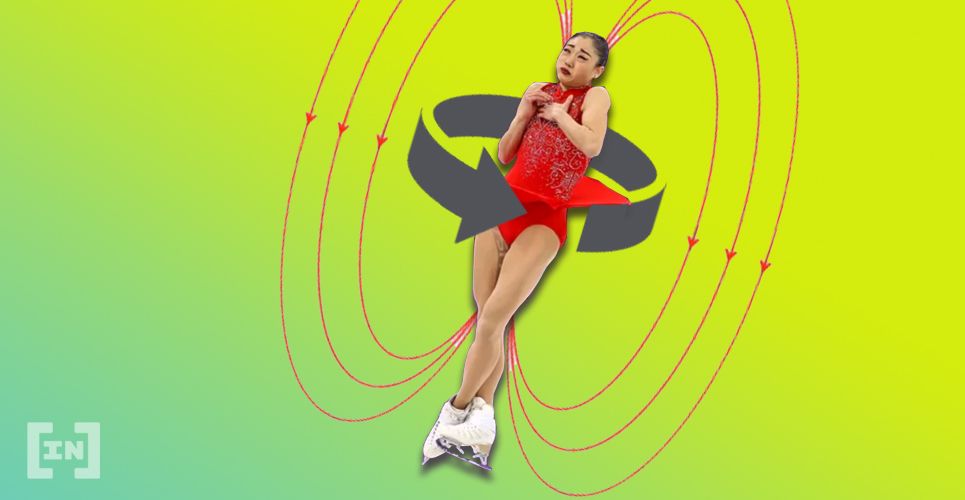Researchers at the University of Glasgow have made a major discovery in the field of spintronics, or spinning electrons. They say that it is possible to use an electron’s spin to encode data as an alternative to electronics as we know it today.
In a newly-published paper published in Nature Materials, researchers at the University of Glasgow say they were able to pass information between magnets through spinning electrons. Whereas traditional electronics rely on an electron’s charge to transmit and encode data, spintronics offers a means to boost storage capacity and processing speeds.

Spintronics Developments
For a long time, physicists were only able to move electrons along a single atomic layer. This made spintronics limited for data transmissions. However, Glasgow researchers have now demonstrated that information can, indeed, be moved between layers. They were able to successfully move information from one magnet to another, arranged on an ultra-thin film. The findings expand the potential of spintronics to a three-dimensional plane. Glasgow University’s Dr. Amalio Fernández-Pacheco said that the findings are ‘a bit like being given an extra note in a musical scale to play with.’ The implications of the discovery could potentially create new forms of computing previously inconceivable. Back in 2007, Professors Albert Fert and Peter Grunberg were awarded the 2007 Novel Prize in Physics for bringing spintronics to computing. They have been credited with discovering that it is possible to utilize electron spin to increase the rate of information being read from a hard disk drive.
The Fourth Industrial Revolution
We are undoubtedly amid an unprecedented technological age that has been dubbed the ‘Fourth Industrial Revolution.’ With artificial intelligence, automation, self-automating blockchain systems all poised to revolutionize our world, the field of spintronics is just another addition to a budding age of technological innovation. With real-time network connectivity on the horizon, we may very well begin to see real, decentralized systems begin to take hold. The ‘machine-to-machine’ economy is coming. Automated, decentralized systems of the future will require a few key innovations. Firstly, it will require a network capable of reaching consensus on a mass scale without trust. Such developments are already quickly accelerating through Directed Acyclic Graph (DAG) and blockchain-related technology. Secondly, artificial intelligence will push such systems towards ‘rationality,’ allowing for industries to be automated. Thirdly, computing power must be exponentially boosted to match these future demands. This is why spintronics is so promising — with it, we can begin to see what a future technocratic world may look like. Of course, this all is partly simplified. The Fourth Industrial Revolution will inevitably also displace hundreds of millions into unemployment through automation. We will soon be met with a unique social crisis that will have to be dealt with through ingenuity and social care. Regardless, we must begin to grapple with these serious social questions before the rate of technological change accelerates past our ability to address them quickly enough. Do you agree that spintronics could revolutionize computing? Let us know your thoughts in the comments below.Disclaimer
In adherence to the Trust Project guidelines, BeInCrypto is committed to unbiased, transparent reporting. This news article aims to provide accurate, timely information. However, readers are advised to verify facts independently and consult with a professional before making any decisions based on this content. Please note that our Terms and Conditions, Privacy Policy, and Disclaimers have been updated.

Advertorial
Advertorial is the universal author name for all the sponsored content provided by BeInCrypto partners. Therefore, these articles, created by third parties for promotional purposes, may not align with BeInCrypto views or opinion. Although we make efforts to verify the credibility of featured projects, these pieces are intended for advertising and should not be regarded as financial advice. Readers are encouraged to conduct independent research (DYOR) and exercise caution. Decisions based on...
Advertorial is the universal author name for all the sponsored content provided by BeInCrypto partners. Therefore, these articles, created by third parties for promotional purposes, may not align with BeInCrypto views or opinion. Although we make efforts to verify the credibility of featured projects, these pieces are intended for advertising and should not be regarded as financial advice. Readers are encouraged to conduct independent research (DYOR) and exercise caution. Decisions based on...
READ FULL BIO
Sponsored
Sponsored

